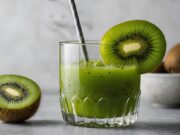- Human saliva is 99.5% water. The remaining 0.5% is a mix of enzymes, electrolytes, antibacterial compounds, and various substances.
- Saliva plays a key role in digestion. It begins the breakdown of food with enzymes such as amylase, which breaks down carbohydrates, and lipase, which starts to digest fats.
- We produce about 1 to 2 liters of saliva each day, depending on the individual.
- Saliva serves as a natural mouthwash. It helps to wash away food particles and bacteria, which aids in maintaining oral hygiene.
- A lack of saliva can lead to dry mouth, a condition known as xerostomia, which can result in difficulties in tasting, chewing, swallowing, and speaking.
- Saliva contains growth factors that aid in the healing of wounds in the mouth. This is one reason why oral injuries often heal faster than skin wounds.
- It contains the protein lysozyme, which has antibacterial properties and helps in maintaining oral health by controlling the bacterial population in the mouth.
- Saliva helps in maintaining the pH balance in our mouths. This is essential to prevent dental problems like cavities and gum diseases.
- A person’s salivary composition can be unique, similar to a fingerprint. It can contain biological markers indicative of various health and disease states.
- The production of saliva is influenced by the circadian rhythm. It is usually at its highest in the late afternoon.
- Stress can affect saliva production, often leading to a dry mouth.
- Saliva plays a role in taste perception. It helps in dissolving food particles, which can then be detected by taste receptors on our tongue.
- Our salivary glands can react to “food cues,” such as the sight, smell, or even thought of food, and can start producing saliva even before we start eating.
- Saliva aids in the formation of the food bolus, the small rounded mass of food that we swallow after chewing.
- It plays a crucial role in speech. It helps in the lubrication of the mouth and throat, allowing us to talk smoothly.
- There are three pairs of major salivary glands in the human body: the parotid glands, the submandibular glands, and the sublingual glands.
- The enzyme histatin found in saliva has antifungal properties, which can help to prevent oral infections like oral thrush.
- Saliva can act as a diagnostic fluid. It can be used in the detection of various conditions, including certain cancers, HIV, and hormonal imbalances.
- There are more than 700 species of bacteria that live in the human mouth. Many of them survive and thrive in saliva.
- The body typically reduces saliva production at night, which is why people often wake up with a dry mouth.
Facebook Comments

































